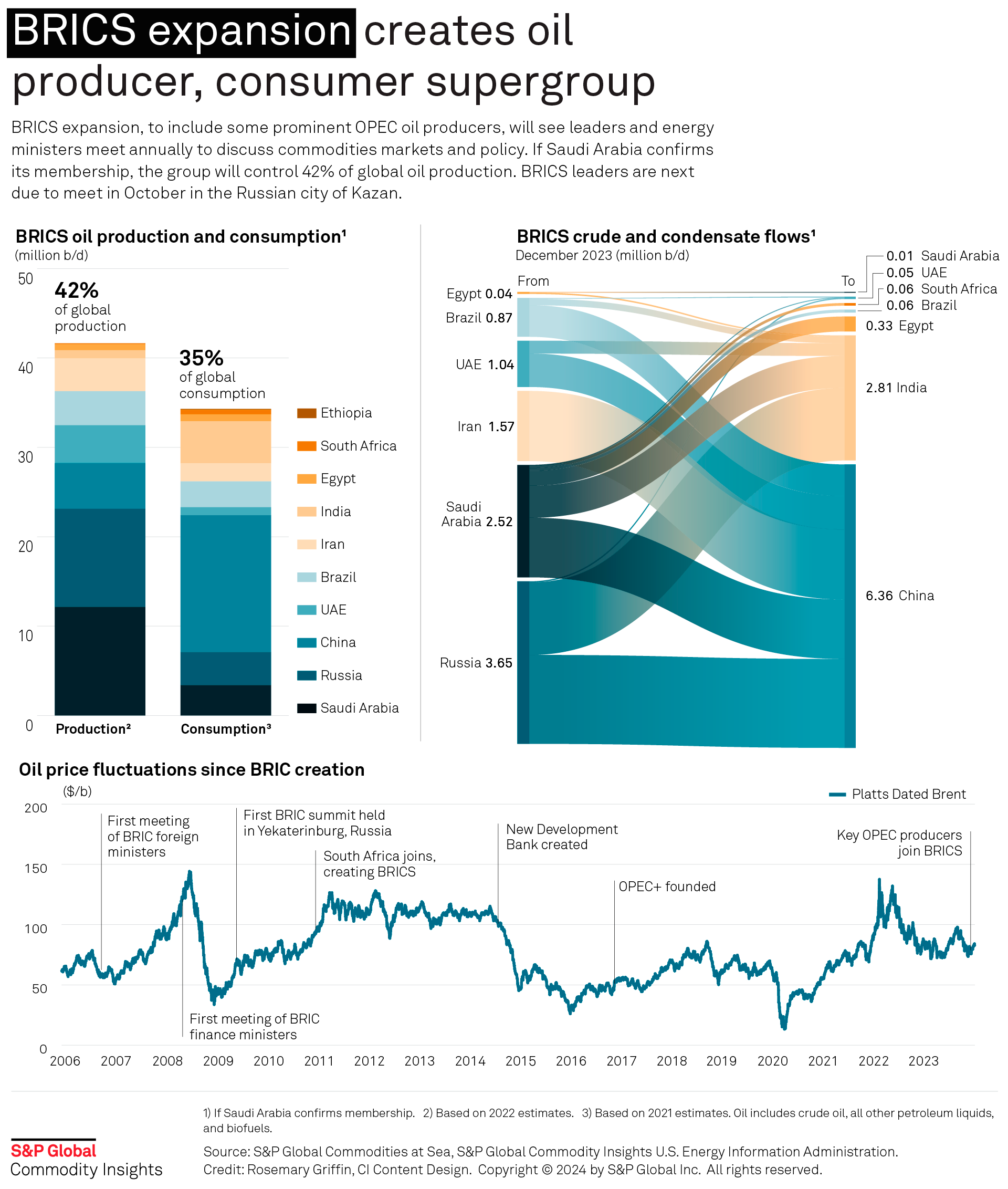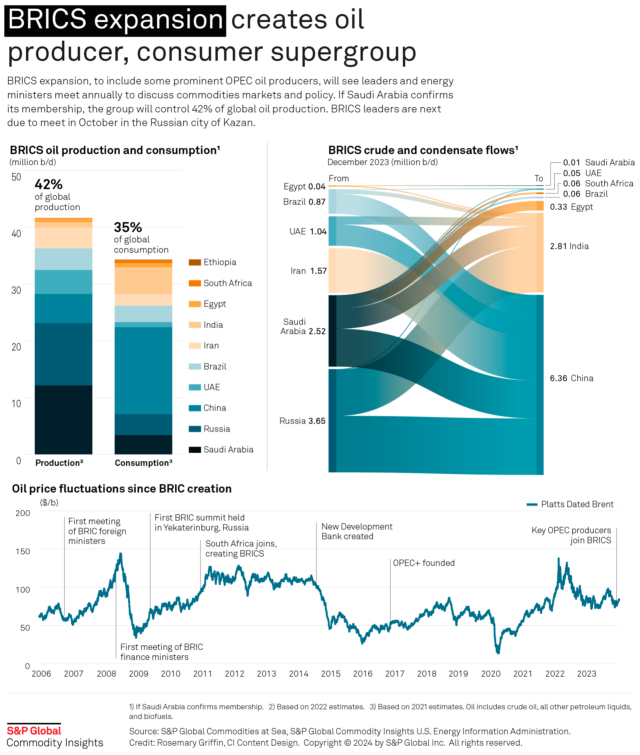Emerging economies bloc seeks to counter western influence
Saudi Arabia yet to confirm participation
BRICS bank, de-dollarization could affect oil trading
Expanding the BRICS group of nations to include the UAE, Iran and potentially Saudi Arabia could help to align the economic goals of members now controlling almost half the world’s supply of crude with their key customers in Asia and lead to more downstream investment, analysts said Jan. 31.
Not registered?
Receive daily email alerts, subscriber notes & personalize your experience.
The UAE and Iran have already committed to BRICS membership, joining a coalition that includes Russia, China, India and Brazil. The group’s outgoing president South Africa late Jan. 31 said Saudi Arabia — the world’s largest crude exporter — would also become a member. Riyadh has yet to confirm its membership.
“BRICS itself won’t lead to more oil cooperation, apart from the potential for more downstream investment,” said Jim Burkhard, vice president of oil markets, energy and mobility at S&P Global Commodity Insights. “It is another forum in which Russia, Saudi Arabia, and the UAE can meet and strengthen economic relations.”
Saudi Arabia, the UAE and Iran produce 17% of the world’s crude. Existing BRICS members Russia and Brazil are also major producers. The Arab Gulf states and the Islamic Republic are the main suppliers of the medium sour grades preferred by Asian refineries. However, all three have seen their market share pressured by Russian flows, which are heavily discounted due to the price cap mechanism.
“China’s position as the world’s biggest crude oil importer gives it good reason to curate tighter economic ties with Riyadh, Tehran and Abu Dhabi in addition to Moscow and Brasilia,” Kevin Book, managing director of research at ClearView Energy Partners said.
New members
With Saudi onboard the BRICS grouping would be a commodities powerhouse. Members would control 42% of global oil production and 35% of total oil consumption, data from the US Energy Information Administration indicates.
“Founding BRICS countries such as China and India have similar priorities that the flow of energy commodities should continue unimpeded,” said Amit Bhandari, senior fellow, energy and environment, at the Mumbai-based Gateway House thinktank.
Russia holds the BRICS presidency for 2024. Participants in the group’s latest meeting discussed increasing the use national currencies and payment instruments in bilateral trade, according to a statement from the Russian Foreign Ministry.
Developing alternatives to Western economic and political institutions has long been a major part of President Vladimir Putin’s foreign policy. Russian officials see this as a way to protect the economy against sanctions imposed since 2014 over Russian military aggression towards Ukraine.
Since Putin came to power in 2000 Russia has been instrumental in establishing several new international organizations including the Gas Exporting Countries Forum (GECF) and the Shanghai Cooperation Organization (SCO) in 2001, the OPEC+ oil production coalition in 2016, and the Eurasian Economic Union 2015.
Russia’s membership of the G8 was suspended in 2014 following its annexation of Crimea. Western sanctions imposed since the full-scale invasion of Ukraine launched in February 2022 have increased the importance of alternatives for Russia as it sees economic links with Western economics shrink.
Further expansion
Russia’s BRICS partners have been receptive to its goal of decoupling from Western economies. In 2014, BRICS nations established the New Development Bank to support infrastructure and sustainable development projects in emerging markets and developing countries.
Russia’s most significant energy cooperation with new BRICS members is the OPEC+ crude production agreement. The deal has held through economic downturns and Russia’s invasion of Ukraine, which led to Western calls to isolate Russia from the global economy.
Some analysts see the diversity of BRICS members’ economies and priorities as limiting cooperation.
“This suggests to me that BRICS meetings will provide space for rhetorical pushes and bilateral, smaller group pilot projects including on co-investment in the energy space, trials for local currency settlement and perhaps expansion of development projects,” economic and political risk expert Rachel Ziemba said.
Russia is likely to push to further expand the group during its presidency. The next BRICS leaders’ summit is set to take place in October in the Russian city of Kazan.





